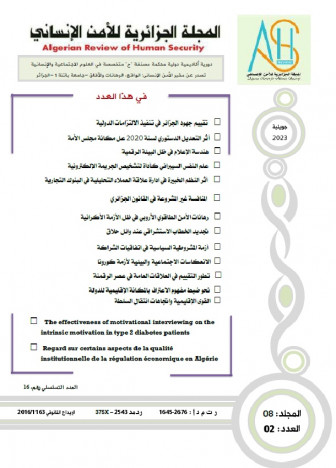International protection for the displaced from the perspective of international human rights law
DOI:
https://doi.org/10.59791/arhs.v8i1.1944Keywords:
Displacement, International Protection, Human Rights, Guiding Principles, Kampala ConventionAbstract
One of the most important phenomena that the international community is witnessing today is the people leaving their areas of habitual residence for various reasons, which is known as displacement. However, it differs from other legal concepts such as asylum and migration in several points, especially in the fact that the individual does not leave the borders of his country and stay within other areas more safe for him and his family. Although the displaced are not the subject of an international agreement, such as refugees for example, they are subject to international human rights law in time of peace, and international humanitarian law in time of war. The international protection of the displaced within the general rules and principles of international human rights law is of great importance, although the international community did not give it that necessary attention, and did not arrange for it the status it deserves, at least as it did with some other internationally protected groups, such as refugees and migrants, for example. The reason for this is that the issue of displacement is closely related to the issue of the internal sovereignty of the state, as the displaced leave their usual places of residence to safer and more stable places without going beyond the borders of their internationally recognized state. However, at the same time, it is not possible to ignore the imbalances and problems that the issue of displacement may raise that directly affect international peace and security, which takes it out of the circle of narrow internal affairs to the scope of public international law.





